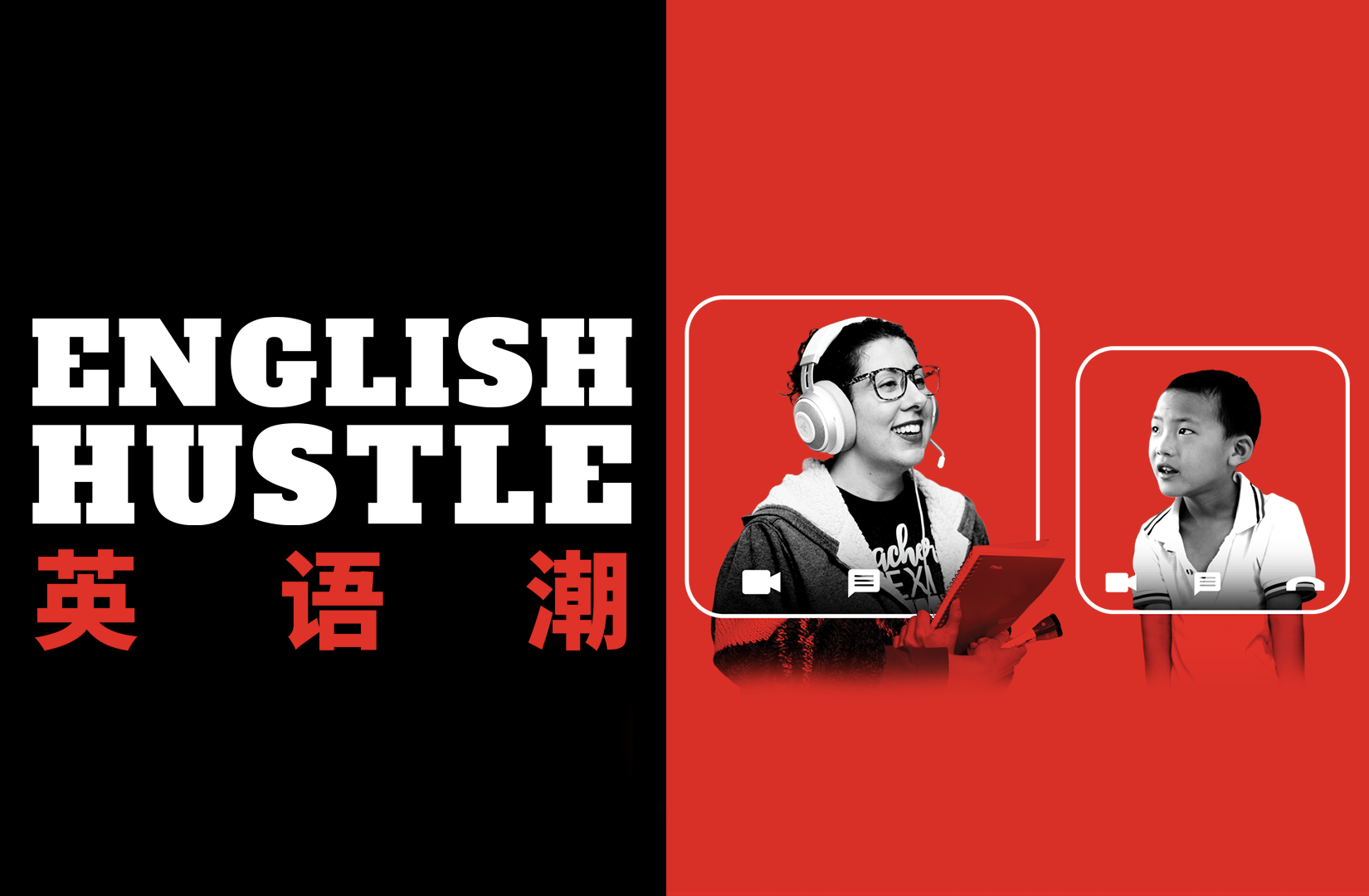Q&A: Director Charles Abelmann on ‘English Hustle’ and China’s online language tutoring industry
The China Project sat down with producer and director Charles Abelmann to discuss his latest documentary, English Hustle, which tells the story of the rise and fall of the online English tutoring sector in China from the perspective of foreign teachers.

Teaching English online to Chinese students used to be big business. In 2020, there were more than 100,000 American tutors working in this field. With billions of dollars in venture capital funding, the industry was poised to become the largest sector in the ed tech space.
But things took a drastic turn in the summer of 2021 when Beijing radically transformed its tutoring market. Under a policy known as “dual reduction,” the central government banned core curriculum tutoring and required all companies providing after-school education services to convert to nonprofit status.
The sweeping crackdown wiped out hundreds of thousands of jobs overnight, including those held by foreign teachers. Their plight is the main subject of English Hustle, which cleverly weaves personal accounts of the clampdown to explore its far-reaching consequences.
By following teachers in the U.S. and the Philippines who lived through the roller-coaster ride, the documentary asks a series of questions: What led to this industry’s demise? Was it China’s increasing isolationism? The precariousness of a gig economy propped up by opportunistic venture capitalists? A concern for student well-being as a need for government regulation?
The China Project will host a private preview of English Hustle at Pratt Institute in New York on March 22. Register for free here before tickets run out. Prior to the screening, we chatted with director and producer Charles Abelmann about the making of the documentary and the future of the English tutoring industry in China.
This interview has been edited for length and clarity.
What is your background and how did it draw you to producing this documentary on the English tutoring industry in China?
My career has been dedicated to supporting improvements in access and quality of education in the U.S. and around the world. I started teaching right after graduating from college and then worked in rural Sabah in Borneo as a Luce Scholar. I was in areas doing rural development work where the only experience with Americans had been with U.S. Peace Corps volunteers who had been there years before. People told me about the impact of their English teachers.
Later, I managed education projects at the World Bank in countries including China, and led private and public schools. I worked with a small group of students from the U.S. and China retracing the travels of John Dewey in China. I learned so much from that work and wanted to make another education-related film.
I was amazed by the size of the online tutoring industry in China with few to no regulations. I wanted to understand the practice and the complexity of a multibillion-dollar industry. Later, it also became a story about the impact of policy when the industry collapsed as a result of the crackdown.
How did you find the teachers you featured?
This was a long process. There are hundreds of teachers who created YouTube channels on all the different companies that existed and teaching tips. Teachers made money by teaching and also by referring teachers to companies.
I wanted to find representative teachers that illustrated the complexity of the topic, giving insight into the need for income that drove many to this work. It was very important to me that this was not only a U.S.-China story, given the significance of the Filipino teachers. Conversations led to the final selection of the four teachers we followed and featured.
What was it like visiting them in the Philippines, Thailand, and the U.S.?
The project happened during the COVID-19 pandemic. I traveled to one of the teachers’ homes in Indiana a few times. The family was amazing to work with. They welcomed us into their home at crazy hours of the day and we saw how a gig worker balances an early-morning job and homeschooling her children.
For the subjects in Davao, Philippines, and Bangkok, Thailand, I directed local crews for the filming. I also virtually entered the home of a Chinese student, via Zoom. I directed the filming crews as they toured the apartment and saw what they saw through the camera. I made sure to involve crew members from the places we filmed to help build rapport.
What was the most challenging part of producing this documentary?
As a first-time director and producer, I had so much to learn by doing. It was hard to negotiate access and plan shoots from afar and direct remotely in the middle of the night for me in many cases. We had so much great content, so it was challenging to have so much that we did not use. I was so fortunate to work with the Truth & Documentary Workshop for its amazing support in production and editing.
Were there any voices that you wish you could have featured but were unable to?
I wanted to interview the founders of firms like 51Talk and VIPKID, but they would not talk. I wanted to talk to the investors on record. They talked but didn’t want to be filmed. We wanted more Chinese students and parents, but access was very hard with COVID-19 and their fear of participating. We had more families engaged in the beginning, but they withdrew from participating after the “double reduction” policy.
“Language is culture, psychology. Language is emotion,” a quote from the film says. What do you think is the future of the English tutoring industry in China?
The demand has not gone away. Many tutors are now finding students with no intermediary. More apps and AI-based toys will be used for self-learning. Movies and games will remain popular.
I hope more government schools will start to offer English as an elective over time at no cost, but the climate right now is moving away from teaching English in schools.
Wealthy Chinese families are also moving abroad. Many families for example are moving to Bangkok and enrolling their kids in private schools where English is the language of instruction. Most Chinese families will not have this option and will look for technology as a solution.
What is your goal for producing the film? What would you like viewers to get out of it?
I hope to expose many to an industry they knew little about, but that was significant in bridging China to the world. I hope the film highlights the power of language to form bridges that change our view of the world. I hope it champions the work of teachers devoted to teaching language.
The expert commentators also discuss themes and trends like nationalism and the risks of isolation.
I hope to find a way to reach a Chinese audience with a version with subtitles that can be accepted by censors. I think a Chinese audience will benefit from learning about the home life of the English teachers.






